Ginsters is on a mission to position itself as a beacon of quality and innovation in the savoury pastry category – not an easy job when the stereotypical view of the market is perhaps not as favourable.
“The perception is not the reality – this is fabulous food,” enthuses managing director Stephanie Hildon. Ginsters isn’t changing anything about its ingredients or production methods to achieve this ambition, just simply shouting about its existing practices and quality credentials, she insists.
“We are very protective and very precious about the quality of our ingredients”
“We are very protective and very precious about the quality of our ingredients. When I joined, I couldn’t believe our commitment to 100% British meat because as it would be very easy to drop that in a time of inflation and supply challenges, but we absolutely will not,” the MD tells British Baker.
Hildon joined Ginsters in May 2024 after serving as chief executive of Chichester-based herb supplier Langmead Herbs. During her time there she almost doubled the value of the business, growing it from £13m to £24m through a combination of new contracts and improving operational efficiencies.
Now she is tasked with helping Ginsters on its growth journey with the aim of doubling the brand by 2030. It’s a task very much in hand – volume sales of Ginsters are up 18.3% as it shifted 17.6m kgs of pasties, slices, bakes, and rolls over the past year [NIQ 52 w/e 7 September 2024].
Part of this growth has been spurred by a heavy investment in marketing, notably the brand redesign which puts Cornish attitude front and centre and Taste the Effort campaign. Heading up the £4m campaign is Cornish farmer Merryn, who is seen going above and beyond in her efforts to grow vegetables for use in Ginsters’ pasties, even speaking to the onions through baby monitors.
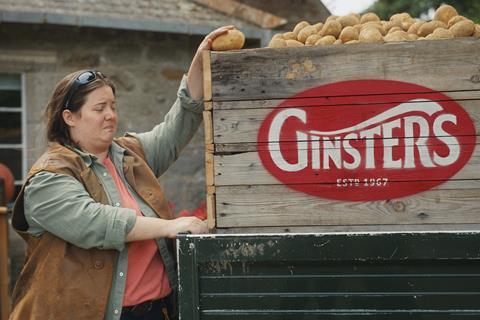
“The fundamental aim of all of our marketing activity is to change the perception of the brand so that in consumers’ eyes it better reflects what we know to be true,” Hildon explains.
Progress is being made, as recognised by Ginsters being named a finalist in the Bakery Brand of the Year category at the 2024 Baking Industry Awards. “We have dramatically moved the dial on our quality perception and our taste perception, which is exactly what we set out to do,” she adds, pointing that it is now recognised as a ‘star brand’ by Kantar.
Halo effect
There is always more work to be done though. But, as the category leader, what is good for Ginsters is good for the wider market. “For every £1 spent on Ginsters, there is a halo impact on the total category that generates £5.74 of category sales,” she says. “So, if we manage to change perceptions and establish Ginsters as really high-quality food and suitable for lunchtime occasions, we can take the whole of the savoury pastry category with us.”
Within quick meals, pasties and slices are present in 31% more occasions than they were five years ago, but savoury pastry still accounts for only 23% of all at-home lunch occasions so there is plenty of headroom for growth. Savoury pastries are also becoming more prevalent at snacking occasions.
“Savoury pastry is one of the most impulsive categories in grocery”
NPD is another weapon in Ginsters’ arsenal with a focus on limited-edition on-trend flavours including a Spicy Sausage & Red Pepper Pasty, BBQ Pulled Pork Slice, and Four Cheese & Chive Slice. Since the launch of this strategy in May 2022, the limited editions have delivered £233k in incremental spend to the category and brought in 452k new shoppers [Kantar 52 w/e 01/09/24].
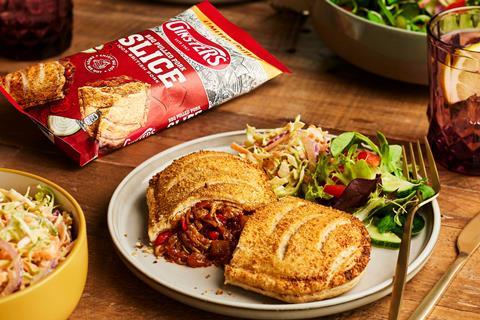
“Savoury pastry is one of the most impulsive categories in grocery,” Hildon highlights, “with 54% of decisions occurring in store for savoury pastry versus 49% for confectionery. There’s a real opportunity there, which is something we are utilising as much as possible.”
Ginsters, backed by Samworth Brothers, is geared up to take advantage of the opportunity following £74.6m of capital investment in The Cornwall Bakery, where Ginsters is produced. More is on the way coupled with “our biggest year of advertising spend”. “We’re underpinned by a massive business that has the long-term health of the brand in mind so we’re not having to make difficult choices about whether we’re investing in bakery next year or advertising,” Hildon notes.
The investment coming down the line will allow for more flexibility and efficiency on the production side meaning the savoury pastry brand can tap into opportunities with the right mix of products.

A slice of the competition
The success of Ginsters has been observed by other players in the category who are eyeing up a slice of the pie. Most notable is Pukka CEO Isaac Fisher, who said in an interview with The Grocer that the orange-clad brand is on a mission to become “the number one business in savoury pastry”.
“If you’re aspiring to another brand in a category, it’s because you think they’re doing a great job and that’s the pinnacle of what you want to be. So, I think actually he’s recognising our success, which is really a great compliment to pay,” Hildon says.
She remains unconcerned about the increased competition though, believing that the pie (or pasty) is large enough for everyone – with “massive potential for growth”. What’s more, Hildon adds, Pukka is a strong player on the pie scene, an area Ginsters doesn’t dabble in. “I don’t want to steal share, I want to drive brand growth by expanding the savoury pastry category.”
Sign post for savouries
With a wide portfolio, Ginsters acts as a “sign post” for the savoury pastry category, according to Hildon, who highlights research which shows 32% of shoppers state that it is the first brand that comes to mind when they think of savoury pastry, versus 8% for the next branded competitor.
But with great power comes great responsibility and an expectation from many consumers that you can meet their needs. “People expect us to have gluten free, they expect us to have vegan, but it’s very difficult to get the rate of sale you need and to maintain availability,” she explains, particularly when consumers with dietary requirements (such as gluten free) tend to bulk buy products to stick in the freezer. “If we don’t deliver a certain rate of sale, we’ll be delisted.”
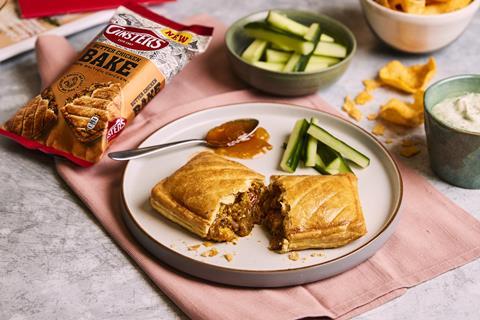
It’s a similar conundrum facing the savoury pastry category when it comes to health. Hildon is “comfortable” that Ginsters wouldn’t be classified as an ultra-processed food (UPF) but admits that high fat, salt, and sugar (HFSS) is a “bit more challenging”. Although exempt from the forthcoming HFSS regulations, pies, pasties, and sausage rolls don’t always have the healthiest connotations.
There are two factors that are important in this, according to Hildon. The first is that “people will make their own choices” with regards to the food they eat, and Ginsters serves a purpose “as part of a repertoire or meal”. The second is around government and policy.
“The first company to go with something that’s very low calorie, low fat, and everything else won’t sell because that’s not what people want to buy. We’ll all have to go at the same time, which requires government policy,” she adds, pointing to the soft drinks sugar tax as an example of such policy in another category. “That’s not us abdicating responsibility,” Hildon insists. “I’d love for us, as Samworth Brothers and Ginsters, to be part of influencing how that happens. We have a role to play because we are such an important brand in this category.”
Flying the flag for Britain
They also have a role to play in supporting British farmers – an industry Hildon’s appreciation for blossomed during her time at Langmead Herbs. And, like her counterpart Rachel Kelley at Samworth Brothers stablemate Higgidy, she is passionate about the regenerative farming journey but acknowledges that it is part of a much larger conversation.
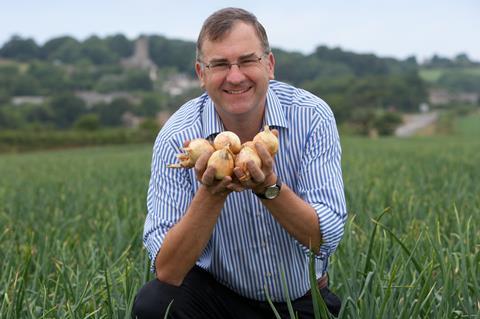
“I really grew to love British farming and felt very strongly about how important it is that industry supports it because it won’t be here if we don’t,” she advocates. “[Farming] is a really difficult industry to be in and if big brands like us don’t get behind it, then there won’t be any questions about regenerative farming practices because there won’t be any British farmland.”
Ginsters commitment to local sourcing, and British farmers as part of that, won’t be going anywhere. And neither will its commitment to taste as Hildon reassures that taste will always be front of mind.
“Savoury pastry is a fabulous food that everybody loves and has great warmth of affection for,” she says. “It’s all very well supporting our brand through marketing and advertising and changing perceptions but at the end of the day it has to measure up when you take it out of the packaging.”




















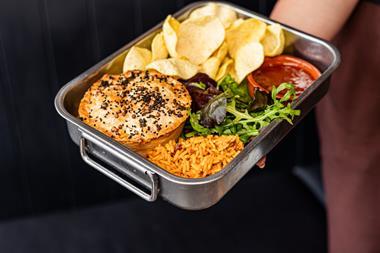
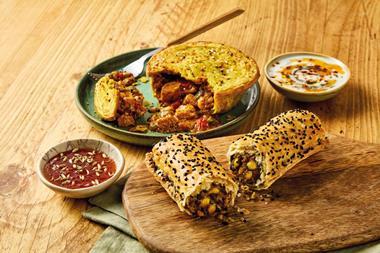


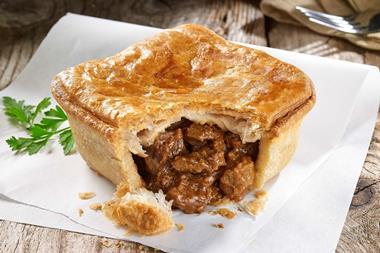
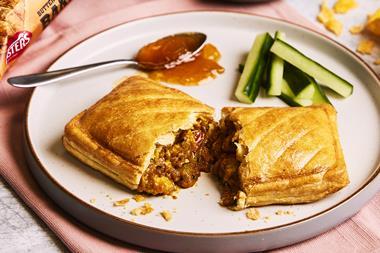
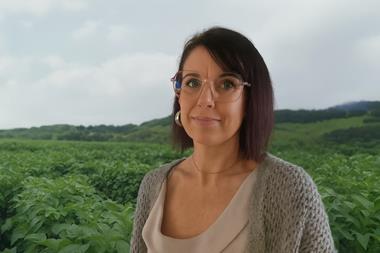

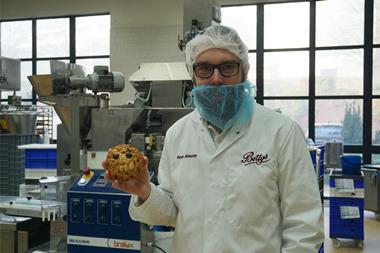


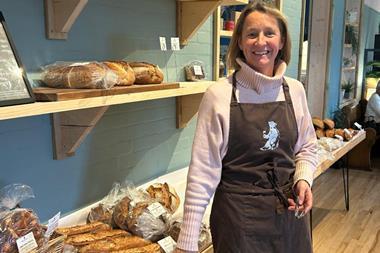

No comments yet